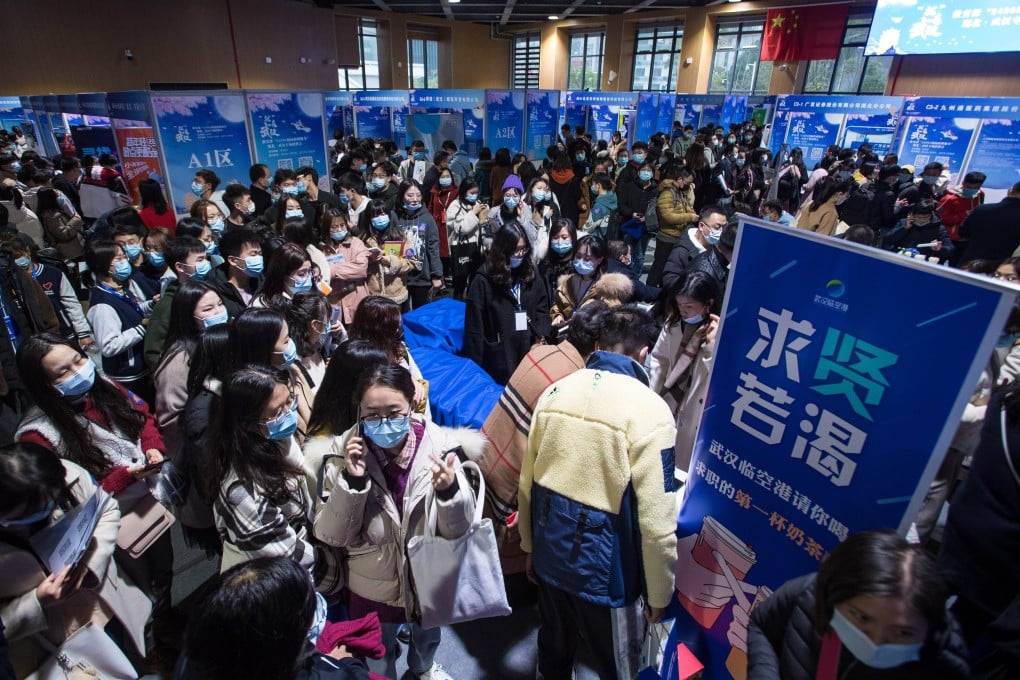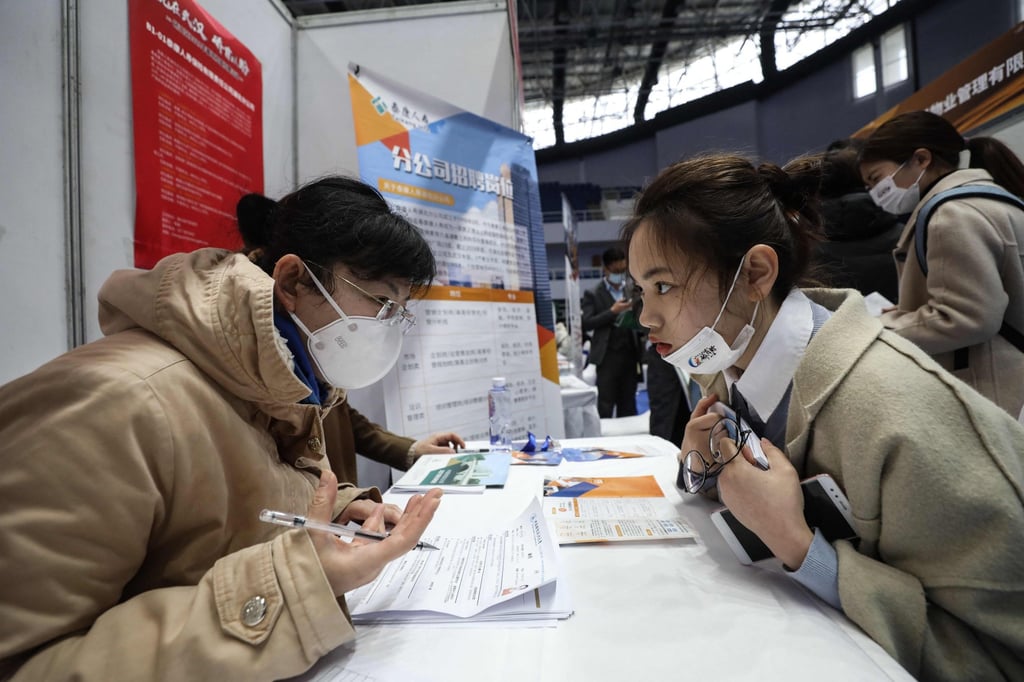Job crisis looms for Chinese graduates as tech, new energy vehicle firms stop hiring amid Covid-19 lockdowns
- Such a rapid increase in the number of graduate job offers being withdrawn is only seen when there is a sudden and significant worsening of economic fundamentals
- For the first time in more than two decades, the number of graduates without job offers could significantly outnumber those who have offers

A job crisis is looming for China’s youth as entry-level positions are disappearing across industries from tech to new energy vehicles amid the country’s rigid zero Covid-19 policy.
Anecdotal evidence, local media reports and official statistics point to a rapid increase in the number of offers being withdrawn, a phenomenon only seen when there is a sudden and significant worsening of economic fundamentals.
Jade Jiang, a native of south-central Hunan province and algorithm engineer who will graduate next month, said she had a clear career path in mind in January after signing a tri-party contract with her school and Beijing-based Zhuanzhuan, an e-commerce app for buying used goods. The company claimed to be a “unicorn”, a start-up with a valuation of more than US$1 billion, so Jiang had no reason to doubt its credibility.
That changed in early May when she received a phone call telling her that the position was no longer available. The company offered her 8,000 yuan (US$1,197) in compensation, but Jiang’s actual losses would be much higher because the campus recruitment season was over. “I felt flustered when I got the news,” she said. “I became desperate and would apply for anything on job recruitment apps.”
The practice is becoming widespread despite the existence of a strict employment contract system designed to protect graduates, whereby a potential employer usually has to sign a tri-party contract with the school and the graduate after an offer is made. If an offer is withdrawn, the company has to pay a fine and bear reputational damage.
Gao Wangnan, a lawyer at Jiangsu Liudian Law Firm, said such tri-party contracts come under China’s Civil Code instead of the country’s stricter labour laws, the latter of which potential employers are extremely reluctant to violate.
